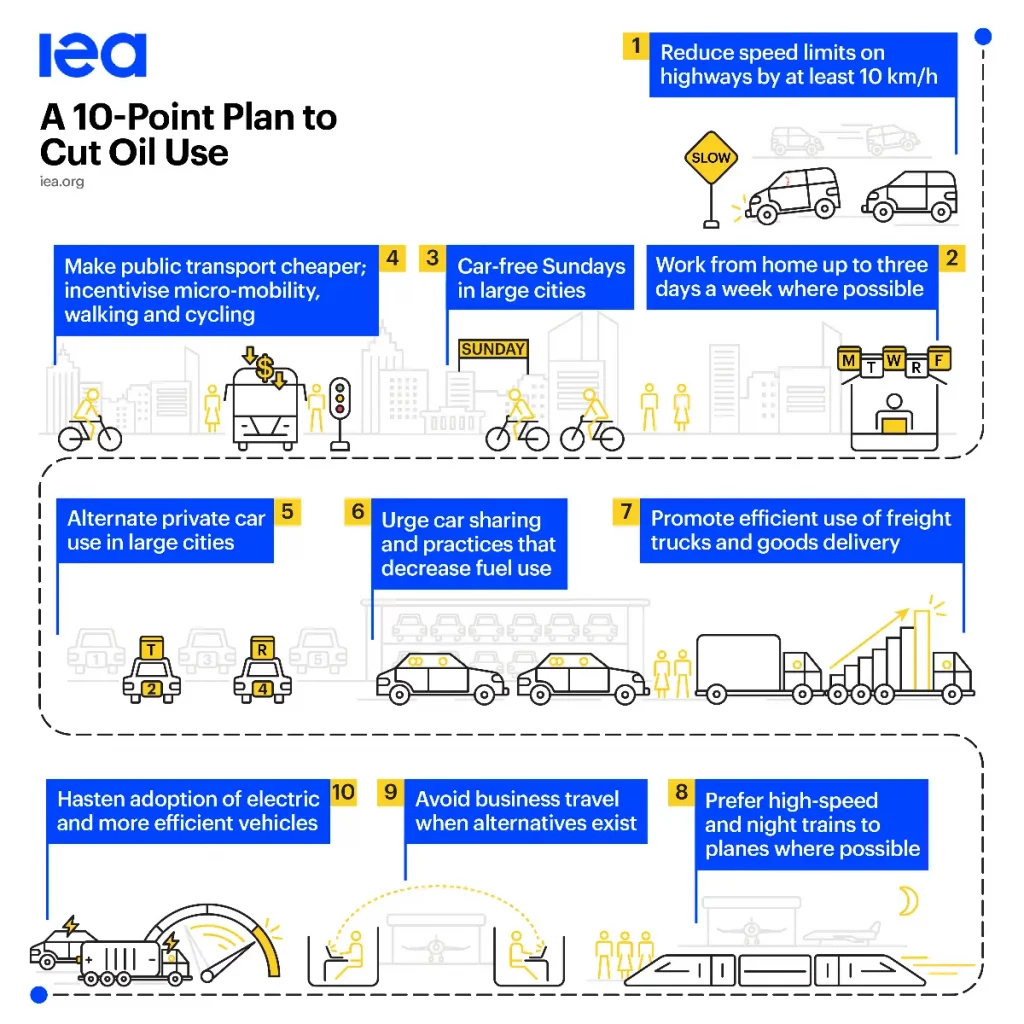Reduce speed limits, car-free Sundays, home insulation…
“Many of the International Energy Agency’s 10 suggested remedies have already been tried in the past and failed to produce meaningful results.”
.
Over the weekend, the International Energy Agency released a ten-point plan:

In the face of the emerging global energy crisis triggered by Russia’s invasion of Ukraine, the IEA’s 10-Point Plan to Cut Oil Use proposes 10 actions that can be taken to reduce oil demand with immediate impact – and provides recommendations for how those actions can help pave the way to putting oil demand onto a more sustainable path in the longer term.
A 10-Point Plan to Cut Oil Use – Analysis – IEA
The international press covered it pretty widely:
Reduce speed limits, car-free Sundays: IEA’s plan to cut oil use | cnbc.com
IEA calls on world to save fuel amid Ukraine war – Taipei Times
World’s energy agency champions home insulation for weaning us off Russian gas | Euronews
International Energy Agency proposes ways to save 2.7 million barrels of oil daily | Arab News
Car-free Sundays? IEA sets out 10-point plan to reduce global oil demand | Oil | The Guardian
This is what Forbes had to say earlier today:
IEA Plan Won’t Snip Europe’s Energy Ties To Russia
The fact is that, unless you live in a wooden cabin in a remote area that is heated with wood, has no air-conditioning or any other appliances, grow and kill your own food and you are completely and totally disconnected from modern society, products derived from oil or natural gas play integral roles in your lives. From your iPhone to your televisions to your computers to your appliances to your furniture to your shoes and clothes and makeup and toothpaste and thousands of other daily-use products, you most like use petroleum in dozens of ways every day, even if you drive a Tesla. Oh, and that Tesla contains myriad parts made from petroleum as well…
Given that the largest percentage of oil use comes in the transportation sector, there is nothing inherently wrong with any of these 10 suggestions: They all make some level of sense. Indeed, many of the 10 suggested remedies have already been tried in the past and failed to produce meaningful results. Basically all the rest of them are already being tried today at some scale in the wake of the COVID-19 pandemic; yet, global demand for oil continues to rise nonetheless…
The governments of the European nations knowingly and willingly allowed their countries to become largely reliant on Russian oil and natural gas imports over the past decades. To a great extent, they did this so that they would be able to avoid exploiting their own known oil and gas resources, thus enabling their politicians to boast at international climate conferences of all the progress they were making at reducing emissions. All they really accomplished in doing this was the shifting of those emissions from their countries to Russia, making their own countries reliant on energy supplies from an often-hostile nation in the process. It’s a problem of their own creation.
IEA Plan Won’t Snip Europe’s Energy Ties To Russia | forbes.com